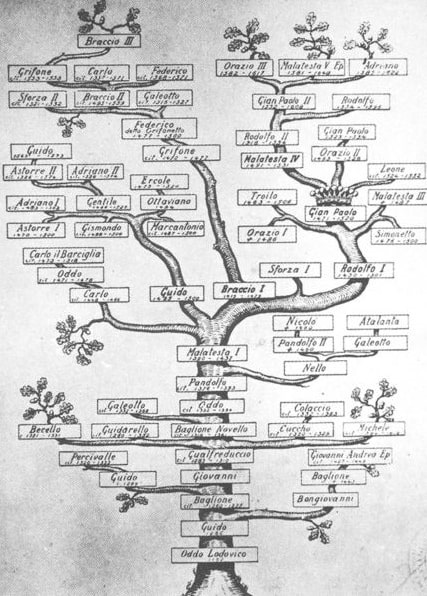Do you have fun researching your family history? And are you thinking of doing it for others, too? Maybe you should consider a genealogy career.
However, search “how to become a certified genealogist?” and you might be overwhelmed by the results. It’s difficult to know where to start.
Fortunately, the right information can get you started on this very rewarding field. But before you learn how to become a professional genealogist, let’s first learn what they do.

What Is a Genealogist?
A genealogist is someone who specializes in ancestry. Specifically, they comb through official records, documents, and even DNA test results to map out an individual’s family tree.
Genealogy is primarily done for personal interests, especially for people who don’t know their heritage. However, there’s also a medical reason for genealogy, as your family tree can highlight if you’re prone to any hereditary illnesses.
Genealogists may be generalized in their practice, or they can specialize in a particular area. For instance, some may focus specifically on Chinese genealogies.
Genealogy Career: What Does a Genealogist Do?
Research is at the heart of what a genealogist does. Their main source of demographic information is census data from the U.S. Census Bureau. To supplement this, they also comb through historical documents, government certificates (like marriage and death), and newspaper archives.
They then use this data and interpret it. Sometimes, information is incomplete, so genealogists need problem-solving skills to try and fill in the gaps. Also, they routinely have to decipher old or hard-to-read handwriting, which is another critical task of genealogists.
Becoming a Genealogist: Excellent Skills to Have
Figuring out how to become a successful genealogist starts with knowing the essential skills. And in the field, these can be classified into two types of skills: genealogical and business.
Genealogical skills are the core methods and knowledge you’ll use. Mostly, it entails having excellent research skills and the patience to pore through hundreds of records, census data, and newspaper clippings to find the information you need.
It also helps if you have a genealogical specialty, such as focusing on religious records or working mostly with family histories. Genealogy is vast, so specializing can help you hone your skills.
But expertise in genealogy isn’t enough, however. As a professional genealogist, remember that you’re a business. That’s why you also need business skills. The most important here is marketing: you need to know how to market yourself and find clients. In addition, it pays to know how to manage your books, manage your schedule, and even handle customer complaints.
Business skills might not be the most glamorous part of being a professional genealogist, but mastering them is critical to enable you to do it for as long as you want.
How to Become a Professional Genealogist
There are no formal qualifications to become a genealogist, and there’s no set path or course to get there, either. However, a few suggestions on how to become a professional genealogist are listed below.
The best first step is to apply for genealogy certification. Not only does it help you assess your skill level, it’s also great proof to clients that you know what you’re doing. You can certify yourself with the Board for Certification of Genealogists (BCG) or the International Commission for the Accreditation of Professional Genealogists (ICAPGen).
If you’re also looking into “how to become a professional genealogist online,” you’ll be glad to know that most of these accreditations can be completed through the internet.
To build and keep your skills up to date, you should also attend seminars and workshops regularly. The National Genealogical Society offer some great options. You can also build skills through genealogical journals and case studies.
Networking with fellow genealogists is also a great way to become a professional genealogist. They can share their experiences and mistakes, so you’ll have an easier time turning professional.
You can also build practical experience to enhance your skills. The easiest way is to volunteer with your local genealogical society and participate in real-world tasks. You can also visit courthouses, libraries, and the U.S. National Archives to familiarize yourself with archives, card catalogs, and other data stores.
Alternatively, you can also perform an indexing project to practice reading and interpreting records. And, of course, continue to work on your family’s genealogy to refine your skills further.
Not a Professional Genealogist? Let GenealogyBank Guide Your Research
As you can see, when it comes to how to become a genealogist, it takes dedication and a passion for the subject.
If you don’t want to become a professional genealogist and simply want to build your family tree, a better alternative is to use GenealogyBank. We’re a one-stop repository that contains articles from more than 13,000 newspapers, 260+ million obituaries, and all U.S. census records.
Visit us and explore your ancestry today!

I have 40 years’ experience dealing only with Native American genealogy. I have written a book and given speeches telling how to take your family story of Native ancestry and prove that it is true. I have letters from people whom I have helped successfully. I have not considered getting a certificate before because I feel that what I do is beyond what a normal genealogist does. I have now been asked to get a certificate to act as genealogist for my Tribe. Would I qualify? If I can qualify how do I go about it?
Jeanne, thank you for asking about how to start the certification process. The two certifying organizations mentioned have quite different approaches to the process. Both look at a body of your work and measure it against established genealogical standards. I would suggest looking over the requirements of each and deciding which best fits your approach to genealogical research. You can find the ICAPGen information here: https://www.icapgen.org/become-accredited/ and the Board for Certification of Genealogists here: https://bcgcertification.org/overview/ Both institutions have support groups you can join as you go through the process to help answer any questions you might have about the requirements.